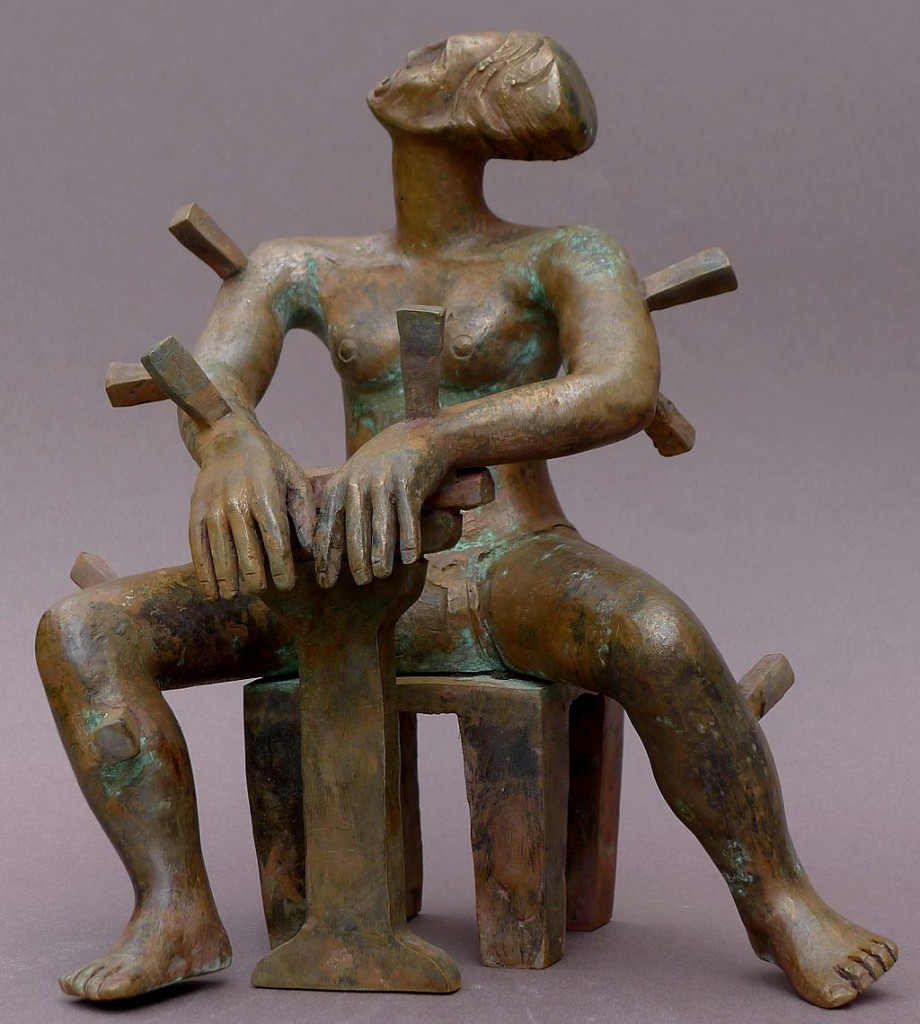We sometimes refer to them as radical traditionalists, but the term is incorrect: their approach is neither radical nor traditional, as I discussed in an earlier piece:
The word “radical” is funny, because it comes from the word “radix” or “root” – so it can refer to a rootedness, as well as a commitment to utter and total change. This word, with its oxymoronic implications, refers well to what we as Christians should be, committed to the roots of our faith in the presence of Christ, and committed to radical, fundamental transformation of our mere human endeavors. To be a “radical traditionalist,” then, should entail a complete and personal dedication to a tradition that we believe has the deepest possible roots, in eternal truths made manifest in Christ, but also to the possibilities of transformation. It means we enter into communion with a rich ongoing tradition even when at times we are confused or troubled, or even angry. We do not reject those parts of the tradition that do not suit us, but we also realize that on a human level we haven’t figured it all out yet.
As a friend of mine recently suggested, we should refer to this approach not as traditionalist, but as reactionary.
This is accurate, because when we react, we tend to fall into patterns of what Friedrich Nietzsche and Max Scheler elucidated in their discussions of ressentiment: when we react out of resentment, we transmute disvalue into value, so that hatred is manifested as love; bitterness as virtue. Ressentiment is not, of itself, fruitful, but feeds off of distrust and fear, a moral and intellectual cancer. It colors everything, darkens everything, so that the basic phenomenological ability to perceive value is warped, and one is given gnostic assurances that the unholy is in fact holy – that the holy is a sham. That’s why reactionaries can’t stand Pope Francis, and tolerate or even like Trump. Once you fall down the rabbit hole of reactionary thinking, and land in the underworld of ressentiment, good is recast as evil and evil as good, in spite of what ought to be clear and apparent to anyone simply looking, encountering.
Ressentiment means you can no longer encounter, face to face.
I’m not particularly interested in getting into a scuffle with the purveyors of reactionary Catholicism. You probably know too well the type I’m talking about, and probably can summon a number of names from the blogosphere, or the world of mild celebrity Catholicism. But what we are offered, by the reactionaries, is nothing new: this is a problem which has haunted the Church since it’s inception, the temptation to remodel the Body of Christ into a mere institution.
I am reminded of Flannery O’Connor’s novel Wise Blood, in which the protagonist, Hazel Motes, sets up his “Church of Christ without Christ.” The Church without Christ ends up being extremely compelling, more weird and fantastic than any ordinary everyday church with Christ, and there’s no doubt that Hazel is more ardently committed to his invention than are many hypocrites who preach Christ without sincerity. But ardent commitment is no replacement for genuine Christianity – as we in an age of extremist faux religion should realize.
The Church of Christ without Christ is not a happy place to be, because even with all the trappings of doctrine, ritual, faith, and morals, even with lip service given to the sacraments, without Christ human beings are left with the unbearable burden of sin and misery to try to carry themselves. This is why reactionaries speak of “breathing new life into the Church” – as though the Church, founded by Christ, with Christ alive and present among us, needed new life – as though the sacraments do not suffice, as though the Holy Spirit were not truly present with us, guiding us. This is why they see themselves always averting some grandiose crisis, afraid for the idol they have made of the church, because idols, of course, are easily shattered.
The true crisis – the danger that searching souls will be turned away, and reject mercy, and fall into despair – they do not seem to notice. Alienating people from their idol is fine, because their idol must be preserved, delicate construct that it is.
Without Christ’s sacrifice, we are left with the need to make, over and over again, our own sacrifices, as Hazel Motes blinded himself with quicklime. Without true faith in the sacrificial love of Christ, we fall back into the scapegoat mechanism, needing to do violence to ourselves or others, because on some deep level we do not truly believe that Jesus’ death was enough. This eradication of Christ from the Church is behind so many of the movements in the history of Christianity, that have corrupted the Gospel with violence: when we no longer have faith in Christ and the cross, we deceive ourselves into thinking it is necessary to enact violence against the heretic, the Other, the enemy – we need to make war and excuse torture – we need to cast out the unfit – we need, also, to lacerate ourselves, repeatedly, trapped in cycles of rage and despair, because Christ is absent, and all we have now is a mighty edifice of rules and principles to which we can never live up. The need to prop up this edifice is exhausting, when we lose faith in Christ.
Have you not heard of that madman who lit a lantern in the bright morning hours, ran to the market place, and cried incessantly: “I seek God! I seek God!” — As many of those who did not believe in God were standing around just then, he provoked much laughter. Has he got lost? asked one. Did he lose his way like a child? asked another. Or is he hiding? Is he afraid of us? Has he gone on a voyage? emigrated? — Thus they yelled and laughed.
The madman jumped into their midst and pierced them with his eyes. “Whither is God?” he cried; “I will tell you. We have killed him — you and I. All of us are his murderers. But how did we do this? How could we drink up the sea? Who gave us the sponge to wipe away the entire horizon? What were we doing when we unchained this earth from its sun? Whither is it moving now? Whither are we moving? Away from all suns? Are we not plunging continually? Backward, sideward, forward, in all directions? Is there still any up or down? Are we not straying, as through an infinite nothing? Do we not feel the breath of empty space? Has it not become colder? Is not night continually closing in on us? Do we not need to light lanterns in the morning? Do we hear nothing as yet of the noise of the gravediggers who are burying God? Do we smell nothing as yet of the divine decomposition? Gods, too, decompose. God is dead. God remains dead. And we have killed him…
….It has been related further that on the same day the madman forced his way into several churches and there struck up his requiem aeternam deo. Led out and called to account, he is said always to have replied nothing but: “What after all are these churches now if they are not the tombs and sepulchers of God?”(Nietzsche, The Gay Science)
Bourgeois Christianity: tombs of the dead God. Reactionary Christianity: trying to resuscitate the dead God with one’s own meager breath.
True Christianity: faith in the living God, even amidst the dark night, even in the emptiness and the echoing. There is sorrow here, too, and sometimes anger, but there is also solace, forgiveness, mercy, and love.
image credit:https://commons.wikimedia.org/wiki/File:Jongen_S216a_Bouc_%C3%A9missaire-_Scapegoat.jpg
https://commons.wikimedia.org/wiki/Commons:GNU_Free_Documentation_License,_version_1.2













